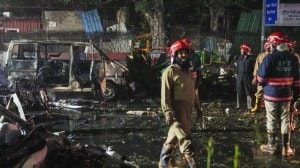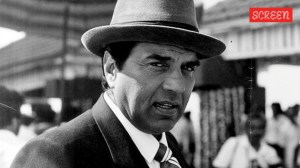Price it right, Mr Aiyar
Union Petroleum Minister Mani Shankar Aiyar is sitting on a power keg. He has doggedly resisted raising the price of petroleum products in t...

Union Petroleum Minister Mani Shankar Aiyar is sitting on a power keg. He has doggedly resisted raising the price of petroleum products in the country in sync with the galloping price of international oil. While we can sympathise with his plight — which newly-installed government would wish to come up with such an unpopular measure so soon after being voted in to power — we would, nevertheless, advice him to be realistic and do what is in the best interests of the country, and its economy. There is really no alternative but to raise prices, Mr Aiyar.
There are several reasons why we say this. Given the political upheaval that is spreading all over the West Asian region, it is unlikely that the price of oil will stabilise in the near future. Energy specialists have, for some time now, been forecasting that oil prices may break the $50 per barrel mark if Saudi Arabia was targeted by Islamic fundamentalists. And now that the terrorists have indeed struck at the heart of the Saudi oil infrastructure, the reverberations are being felt on crude prices, given the oil market’s susceptability to political crises. This has been exacerbated by the US-led operation’s failure in Iraq, thereby postponing — perhaps indefinitely — its access to Iraq’s vast oil reserves. Now, even though the OPEC members have agreed to raise production to cool down the overheated oil market, it may be a case of too little coming too late. This is because over the last few months, the demand for oil in the international market has gone up considerably. Also, while oil producers have been trying to reassure consumers that there would not be a shortage of supply, the fact is that OPEC members are already producing at optimum levels — many of them above their quotas. With the exception of Saudi Arabia few, if any, are capable of meeting any major hikes in demand.
In this milieu, what are the options before the UPA government? The previous government had correctly decided to phase out subsidies by the end of the current fiscal in line with the policy of decontrolling the oil sector. But electoral considerations caused them to defer this. Now the present government is also falling into the same trap and has further deferred the phase out. It is, instead, considering short-term measures, such as cutting customs duty on petroleum products, dipping into the surcharge imposed on petrol to cross-subsidise LPG and kerosene, and establishing a centrally administered oil price stabilisation fund to provide a price cushion. This will only postpone the inevitable and make an untenable situation worse. This will also impact on the investment climate in the oil sector. The government must understand that tough circumstances demand tough decisions.





- 01
- 02
- 03
- 04
- 05


























